Everything equal

Leadership Focus journalist Nic Paton looks at the work of NAHT’s Diversity and Inclusion Group on leading the way in promoting equality.

NATALIE ARNETT,
NAHT POLICY OFFICER
It’s said to be lonely at the top. That’s especially true if you’re the only person who looks like you around the table or in the staffroom as you progress through your career – whether that’s because of your gender or how you identify, your colour, disability, creed or sexuality.
NAHT is dedicated to promoting equality for all its members to achieve equal and fair treatment at work, in the sector, and to accomplish equal representation and engagement in its structures and democratic processes. NAHT’s Diversity and Inclusion Group (DIG), formerly NAHT’s Equalities Committee, leads this work.
“DIG is a sub-committee of the national executive,” explains Natalie Arnett, NAHT policy officer. “It essentially acts as a champion and conduit between members and the national executive. It works to ensure that the association is effectively supporting individual members on diversity and inclusion (D&I) issues. It ensures NAHT advises on and supports members in promoting D&I within their schools; it guides our campaigns on equality issues within the profession, and it reviews, champions and promotes D&I within NAHT,” she says.
However, for all its advocacy and campaigning, NAHT as an organisation is only too aware of the fact that its membership is reflective of school leadership, which, itself, is not as diverse or representative as it should be.
“If we want to be able to serve our members best and offer them great services, we need to know who our members are. If you don’t know who you’re supporting, it is tough to do that effectively,” says Natalie.
To that end, over the coming months, NAHT will be undertaking equality monitoring of its members – voluntary of course – to gather and track data around members who have protected characteristics. Members will be able to complete and share demographic information about themselves and whether they identify with any of the protected characteristics.





“One of the things DIG made a recommendation on at the start of the year was that it is very hard to support all our members effectively if we do not know who all our members are. So, we are hoping to begin a data collection exercise around this towards the end of this term,” Natalie explains.

ADAM ROBBINS,
DIG CHAIR
Of course, it is arguable that from Black Lives Matter through to the #MeToo movement, D&I as an issue is in the spotlight as never before. But we shouldn’t see the name-change to DIG and current emphasis NAHT is putting on D&I as knee-jerk responses or reactions to the upswelling of activism, emphasises DIG chair Adam Robbins.
“DIG, even if by another name, has been around for a very long time. We’ve always been here. So, yes, it is an issue in the news and on the agenda now, but this is not a reaction to that,” says Adam, who is also the head of school at Roding Primary School in Dagenham, east London.
“DIG feeds directly into the national executive, so we have that direct line to drive the agenda. We are the guardians and champions of the equalities agenda as a whole, ensuring that it runs through all the councils, committees and national executive. We are the gatekeepers of all things equality and diversity.
“Nevertheless, there is, of course, an opportunity right now to be giving equality issues a higher profile. DIG is there for NAHT membership – so use us.
“We want more members involved, we want more members’ feedback, and we want members to tap into DIG. We are not a committee that’s buried away on the website,” Adam highlights.
“It is a balance. We want to raise the profile and tap into the wider agenda and momentum that these issues are bringing, but at the same time, we want to make sure it’s not seen as jumping on the bandwagon or just reacting to that. We’ve been doing lots of this work for a long time,” he adds.
Alongside DIG, NAHT has been working to develop NAHT Leaders for Race Equality, a new (currently virtual) leadership networking group for black, Asian and ethnic minority members (scroll down to see more detail on this).



ADAM ROBBINS,
DIG CHAIR
Of course, it is arguable that from Black Lives Matter through to the #MeToo movement, D&I as an issue is in the spotlight as never before. But we shouldn’t see the name-change to DIG and current emphasis NAHT is putting on D&I as knee-jerk responses or reactions to the upswelling of activism, emphasises DIG chair Adam Robbins.
“DIG, even if by another name, has been around for a very long time. We’ve always been here. So, yes, it is an issue in the news and on the agenda now, but this is not a reaction to that,” says Adam, who is also the head of school at Roding Primary School in Dagenham, east London.
“DIG feeds directly into the national executive, so we have that direct line to drive the agenda. We are the guardians and champions of the equalities agenda as a whole, ensuring that it runs through all the councils, committees and national executive. We are the gatekeepers of all things equality and diversity.
“Nevertheless, there is, of course, an opportunity right now to be giving equality issues a higher profile. DIG is there for NAHT membership – so use us.
“We want more members involved, we want more members’ feedback, and we want members to tap into DIG. We are not a committee that’s buried away on the website,” Adam highlights.
“It is a balance. We want to raise the profile and tap into the wider agenda and momentum that these issues are bringing, but at the same time, we want to make sure it’s not seen as jumping on the bandwagon or just reacting to that. We’ve been doing lots of this work for a long time,” he adds.
Alongside DIG, NAHT has been working to develop NAHT Leaders for Race Equality, a new (currently virtual) leadership networking group for black, Asian and ethnic minority members (scroll down to see more detail on this).
“People can get involved as much or as little as they want. We are open to suggestions and ideas that we can pursue and investigate.
“We recognise NAHT’s national executive is not fully representative at the moment, and that is something we want to address. We want to ensure we are hearing, and engaged with, all of the members we represent. So, we want to encourage more members to become involved in the work of the union and broaden our representation, and get input from all different sectors and characteristics,” emphasises Adam.
And, while the covid-19 pandemic has made all senior leaders further time-poor, the fact that the virus does appear disproportionately to affect people of black, Asian or minority ethnic (BAME) heritage, even if the precise reasons why are not yet clear, makes it all the more important to be talking about and promoting D&I at this time.
“It is clear this pandemic has specific implications for various communities, with people from BAME backgrounds, in particular, appearing to be adversely affected,” says Adam.
“What became clear from the first meetings of the NAHT Leaders for Race Equality network, which took place in July and September, is that members felt there was a gap and they haven’t been supported. They did not feel we were making enough noise about them and for them; they did not have a voice. That has been raised to us, and we must act on it. So, my message to members is ‘we’re here: use us and get involved. NAHT is everyone’s union’,” he adds.
This need for NAHT to be forefronting and championing D&I, in its own backyard, in individual schools and more widely across the profession, is very much echoed by NAHT general secretary Paul Whiteman.

PAUL WHITEMAN,
NAHT GENERAL SECRETARY
“DIG is working to make sure that every group we represent, whether they are a group that has a protected characteristic under the law or not, is heard. Unions have always had that ambition at their heart.
“I accept that we haven’t always been as good at that as we should be. What I’m not interested in, therefore, is an equality statement or a committee that gives an impression we’re doing things to tick a box. DIG’s job is to mainstream our debates around equality issues.
“For example, ensuring every policy decision we come up with is informed by DIG, so it has a diversity angle as we develop those policies. It is about mainstreaming equality into all of our work.
“We’ve been on an equality journey for a very long time – after all, the Equal Pay Act is more than 50 years old, and we still haven’t achieved equality in terms of equal pay, despite NAHT pushing hard for this over the years.
“But there are moments – such as now with Black Lives Matter and #MeToo – when energy and appetite emerge within society to make change happen. And we need to grab that with both hands,” adds Paul.
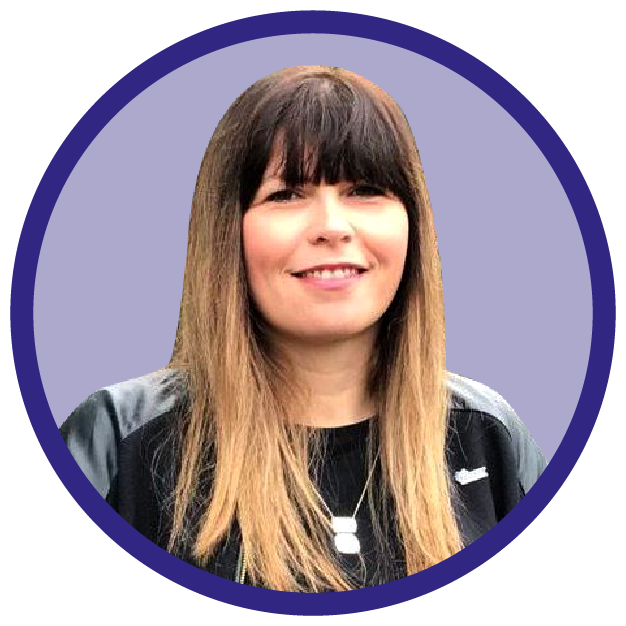
LAURA DOEL,
NAHT CYMRU DIRECTOR
Within this wider agenda, NAHT will also continue to focus on championing regional D&I issues such as, for example, the promotion and protection of the Welsh language, highlights NAHT Cymru director Laura Doel.
“So that will mean things like making sure all our literature is bilingual, that when we carry out our live broadcasts, we have a simultaneous translation and that we have staff who speak Welsh and can represent members in the Welsh language.
“That is something, as director, I am pushing for to ensure the diversity of Wales includes the diversity of all its regions and the nations; that as a union, we represent everyone,” she says.
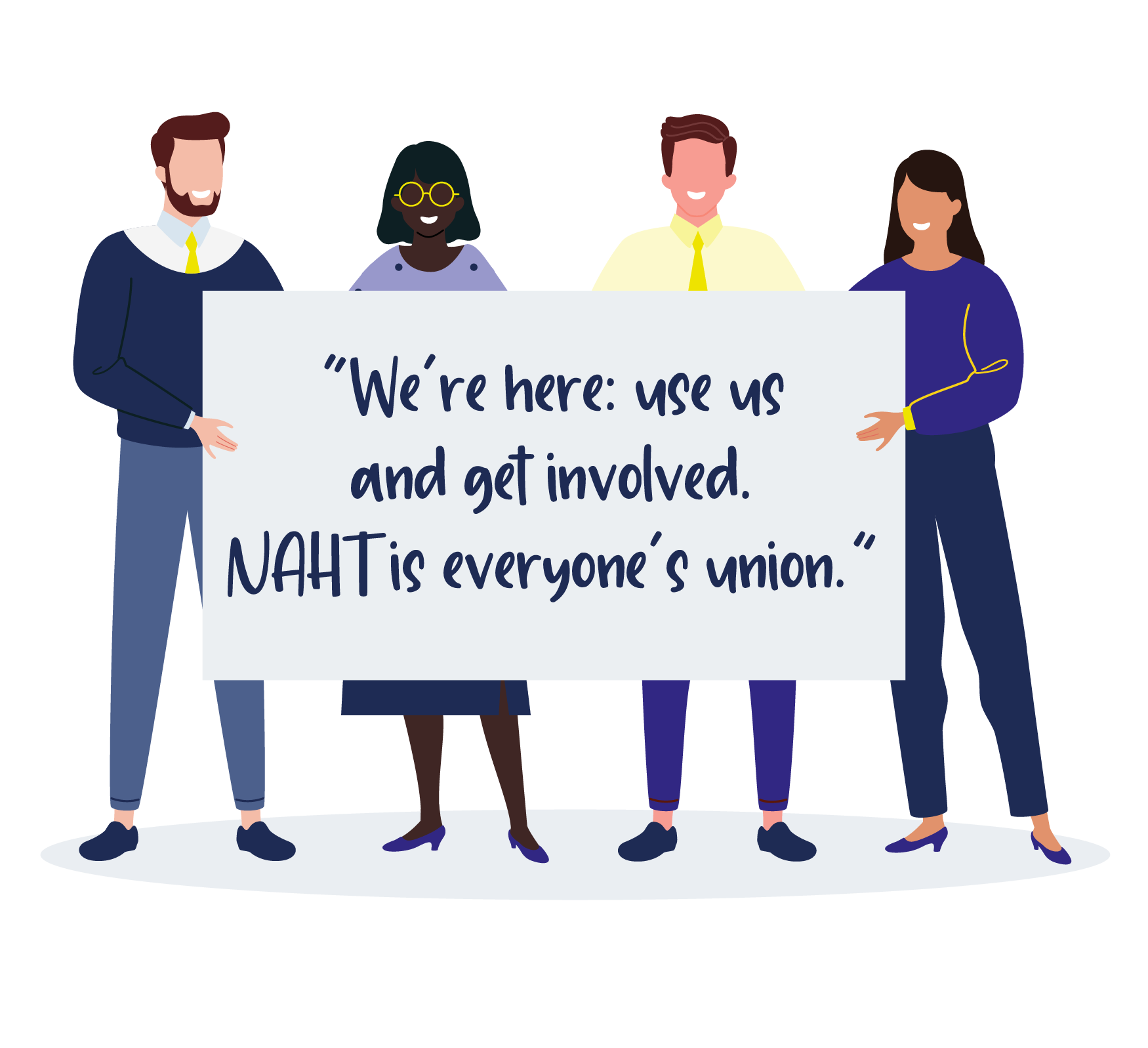
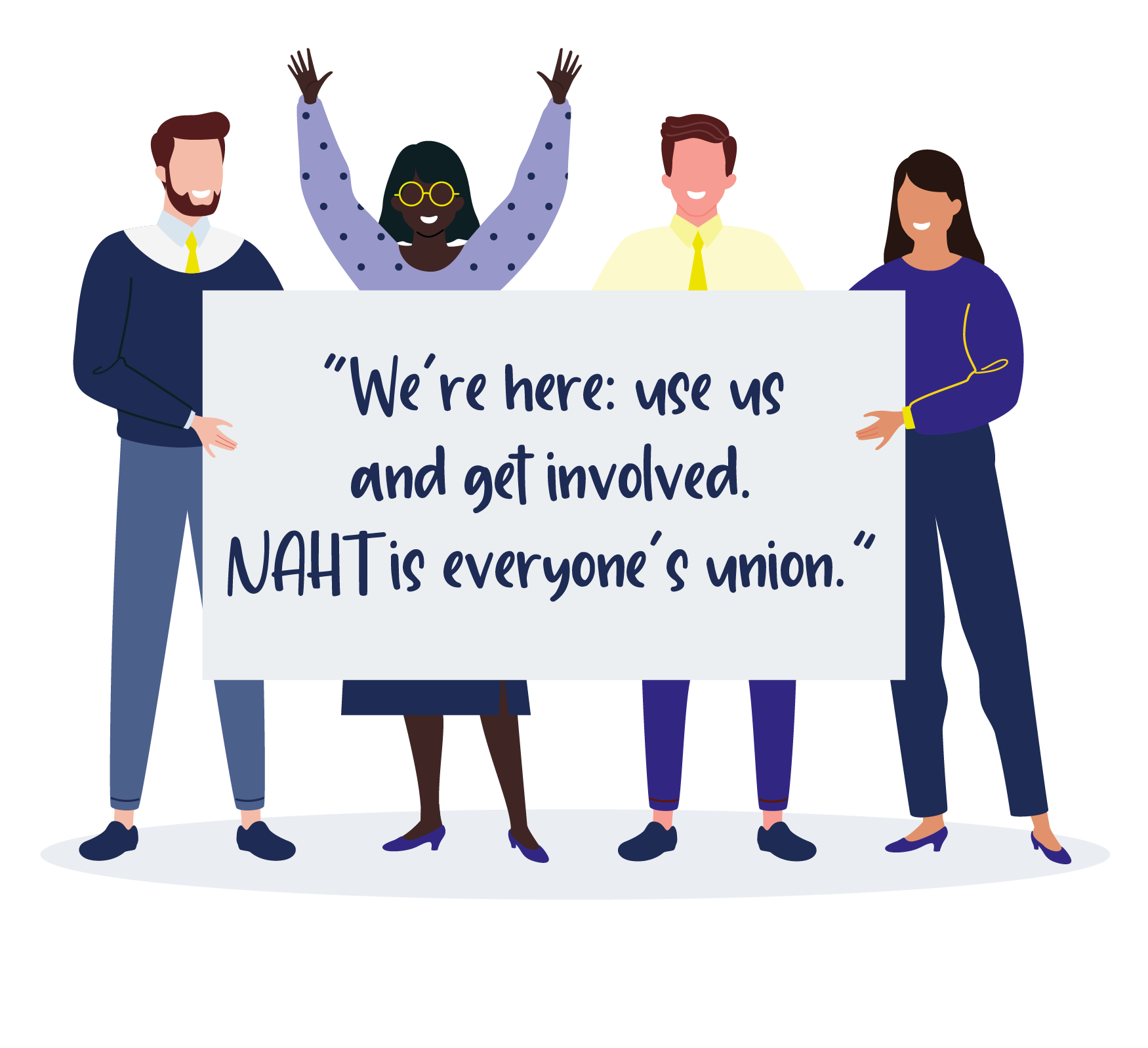
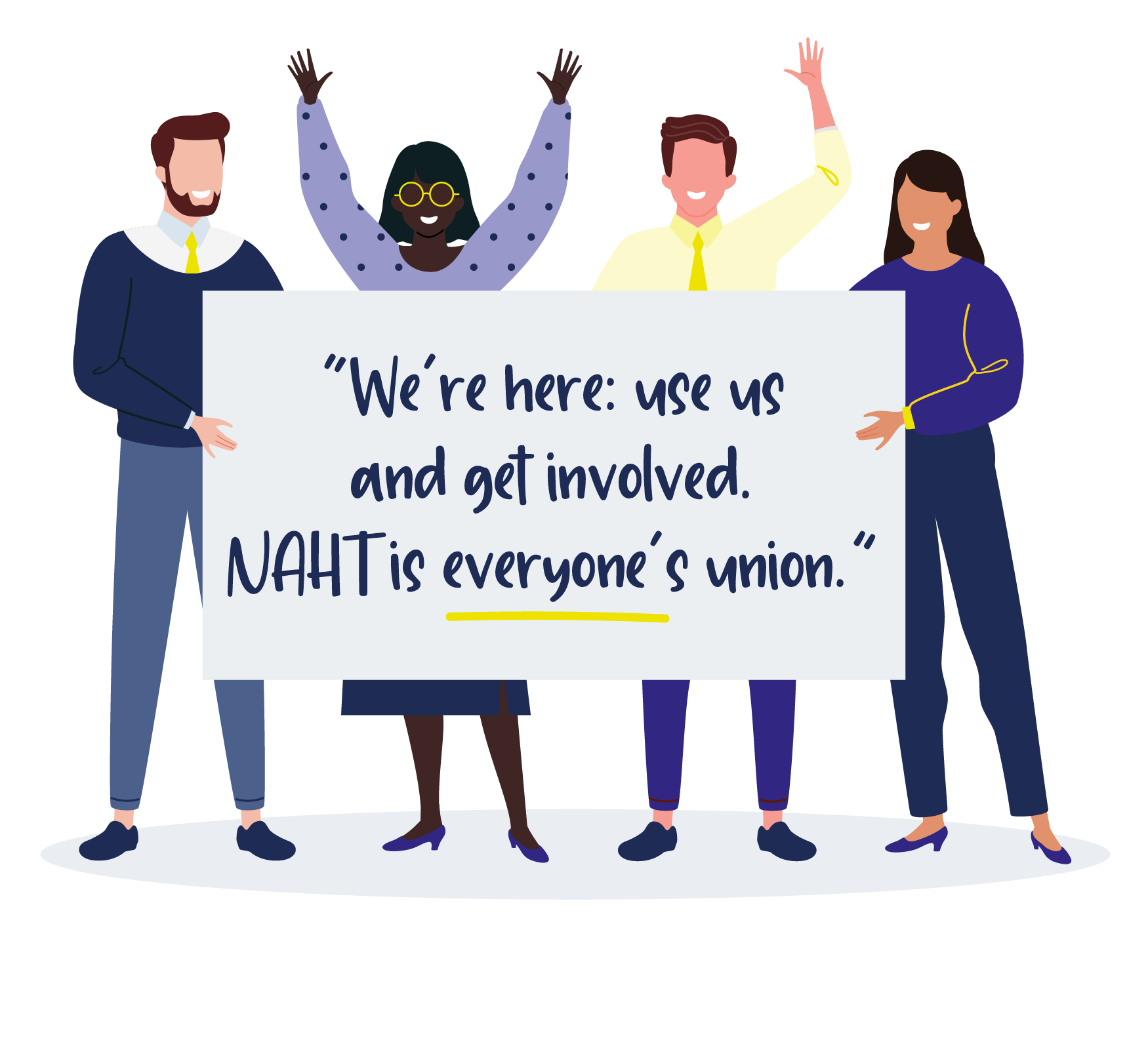
NAHT LEADERS FOR RACE EQUALITY
NAHT Leaders for Race Equality, a networking group for black, Asian and ethnic minority members with protected characteristics, was established back in the summer.
Currently, it has approximately 30-35 members, who are meeting virtually, once or twice a term, supplemented by communication through a WhatsApp group. The members very much lead the group, and NAHT facilitates it. The group provides a space for NAHT black, Asian and ethnic minority members to come together to discuss the experiences and issues facing these school leaders, both within the profession and NAHT itself.
The knowledge and experience from the network aim to inform and deepen NAHT’s expertise and understanding as well as strengthen our representation for black, Asian and ethnic minority members.
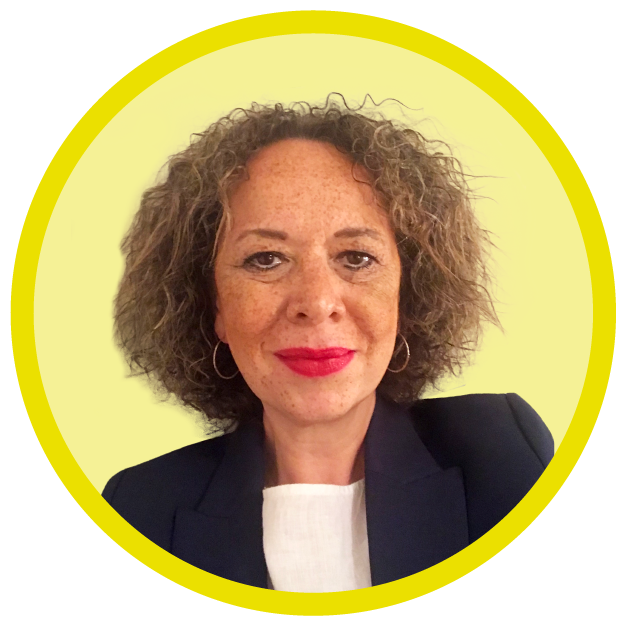
CATHERINE BICKERSTETH IS THE ACTING HEAD TEACHER AT A PRIMARY SCHOOL IN NORTH ESSEX AND HAS RECENTLY JOINED THE NAHT LEADERS FOR RACE EQUALITY GROUP.
“I was attracted to the group firstly because I have just taken on a new leadership role. Secondly, with all my years of being a teacher with my heritage – I am half Jamaican, half white British and grew up in England, in London – I feel it is time, if I can, to help make a difference. If I can help to break down barriers and get more people into teaching from diverse backgrounds mentored into leadership roles, I should do something.
“Maybe it is partly to do with lockdown, but I have had – like many people – a lot of time to reflect on things. And I just thought, I’ve worked in schools where, yes there have been a lot of mixed backgrounds, ethnically speaking, even some with women in leadership. But I have not had many leaders at all, certainly no senior leadership team, who were of mixed heritage or other ethnic backgrounds that were not white British.
“So, I am interested in working out ‘how can you attract more people from diverse backgrounds to fill these roles and step up?’. On a personal level, too, because I am taking on a new leadership role, I felt it would be helpful to have some kind of support network.
“Leadership can be quite a lonely place. Because of the lockdown situation, people can’t travel and go to various meetings, and so, being able to connect virtually has already proved to be valuable. I’ve already had some useful advice on how people are dealing with school openings, for example, so it is not all about diversity and inclusion either.
“Having a forum where you can talk to colleagues and share – whether it is to shout, ask for support or say ‘help!’ – is nice. Sometimes you want to sound off, ask something, say ‘is this just me?’ or talk about something that has happened to you.
“That, for me, is the key thing. It can encourage people to speak up,” Catherine adds.
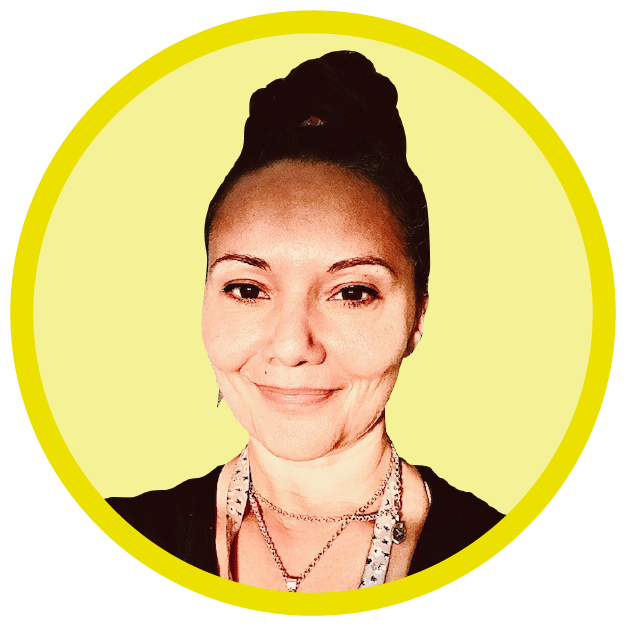
LORNA LEGG IS THE HEAD TEACHER OF OFFWELL CHURCH OF ENGLAND PRIMARY SCHOOL IN HONITON, DEVON, WHICH HAS 85 CHILDREN ON ITS ROLL. SHE IS ALSO A MEMBER OF THE GROUP.
“I rejoined NAHT relatively recently and became part of this group because I’m half Jamaican. This will be my third year as a head teacher, although I’ve been in teaching for about 22 years.
“We’re all, obviously, in similar positions in our careers, but it is so refreshing to realise that the difficulties, confusions or conflicts we all face are shared; that’s made it feel really supportive. It has been almost cathartic for people to be able to share in that way. It is a very welcoming group – very open, even just down to being able to catch up if you’ve had a bad day.
“Black Lives Matter raised a lot of awareness about the structural or systemic ways in which racism occurs. It has been a frequently shared experience; to feel you are failing again and again at interviews, but if you realise somebody else, who you can identify with, has also experienced that and succeeded eventually, that can be encouraging. That is one side: the inspiration side.
“The other side, for me, is sometimes sharing those incidents and experiences can help people who may not realise the impact of their bias or prejudice. We plan to share this more widely, with the support of NAHT.
“[It might] help [people] to see some of the behaviours, actions or language they use is detrimental.“We can’t undo hundreds of years of racist stereotyping overnight, but with greater awareness and the will to challenge bias, there is hope that our society can become equal and, ultimately, benefit from greater diversity.”
The network is open to all black, Asian and ethnic minority NAHT members, across all roles, phases and sectors, including those who may have retired from the profession.
If you’re interested in joining the group, email organising@naht.org.uk.
